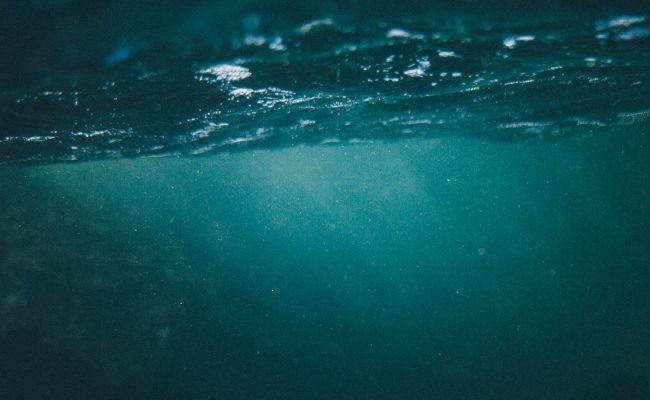Dying of tuberculosis in Rome, the poet John Keats requested his epitaph: ‘Here lies one whose name was writ in water.’
His upset friends assumed this was a bad thing: that Keats had spent his final days brooding that mean early reviews had cruelled his literary reputation. So they angrily annotated the tombstone, adding that Keats’ request had been made ‘in the bitterness of his heart at the malicious power of his enemies’. This has since become a truism about Keats: a wounded Romantic who died of his own sensitivity.
Meanwhile, Joseph Severn, who had nursed Keats when he died in 1821, proposed that the gravestone should have pointed out the irony of the poet’s towering posthumous reputation: ‘Time having reversed this sentence his friends and admirers now inscribe his name in marble.’
I sympathise with their anger, with their yearning for their dead friend’s posterity, and with the vulnerable melancholy they project onto him, because these are common sentiments among writers. I recognise those feelings in myself. But what if Keats were only making explicit what all writers know in their depths to be true? Don’t we all strive to wring something immortally lucid from our mortal insignificance? Don’t we yearn to quench a thirst for beauty and wisdom, long after we are dust and ashes?
In the lyric poem ‘All Day I Hear the Noise of Waters’, James Joyce evokes a sense of despondent isolation and private suffering – and that’s exactly how I experience my own striving for my writing to matter. I don’t treat my writerly peers as a wellspring nourishing my own creativity, but as a thunderous waterfall of reputation-building that buffets me into a gloomy eddy. In my tweet-stream I see them proudly announcing book deals or reporting their productivity targets, showing their mastery of flow. Meanwhile, I struggle to wring out words, drop by drop.
Water is one of literature’s favourite metaphors because it captures dualities and liminalities: life and creation, oblivion and destruction. It’s yielding yet remorseless, soaks into the smallest spaces yet stretches along the entire horizon. It cleanses and contaminates. Aphrodite was born of water; Ophelia died of it.
‘It’s strange that when you are taken by a metaphor, your whole life is pulled into its orbit,’ writes Khalid Warsame, in a Meanjin essay about the fallibility of memory. Water and memory are two of Warsame’s favourite metaphors. ‘Or perhaps those two metaphors are one’. He writes himself into being through aquatic vignettes that slide between recollection and dream, clarity and powerlessness, the fragment and the wound.
Reading Warsame’s essay summoned a disquietingly existential aquatic memory of mine. Last winter, I took a windblown beach walk with friends, tripped on a hidden rock and fell flat on my back on the sand. Unhurt, I got up, only for my friends to point out how lucky I’d been: sharp spikes of rock were protruding through the sand all round me. Every time I remember this, I brood on how easily I might have fallen onto one of them instead, smashing my brain or breaking my spine. In my memory, the cold, briny wind and the ocean roar fold metonymically into the brisk casualness with which my life could have ended, or changed profoundly.
But it didn’t. The volcanic rock-spikes wait there still, sharpened by water over millions of years of insistent erosion. How small my writerly ambitions seem! How quickly they wash away!
We’ve lost the old sense of ‘quick’, from the Old English ‘cwic’ – alive, animated, alert. It shares a Proto-Indo-European root with the Latin ‘vivus’ and the Greek ‘bios’ and ‘zoe’. A foetus is said to ‘quicken’ when its living movements can be felt. Those living are ‘the quick’… and then there are the dead.
‘How astonishingly does the chance of leaving the world impress a sense of its natural beauties on us,’ Keats wrote in 1820 to his friend James Rice. So, as he lay dying within earshot of Rome’s Barcaccia fountain, perhaps the splash of its running water was quick to him – in other words, full of life. Keats accepted his quickness as vividness, and perhaps at the end, he wanted his legacy to be in that recognition.
Emily Dickinson wrote:
The Brain is deeper than the sea —
For — hold them — Blue to Blue —
The one the other will absorb —
As Sponges — Buckets — do —
The Romantics chased the vastness of nature to exult in the sublime. Yet, as Dickinson suggests, and Warsame reminds us, it’s more terrifying and exhilarating to recognise that our own minds are deeper still – an abyss too vast ever to plumb. Our selves – as writers, as humans – are something we envision in an organ we will never truly understand. Yet we try. We write our names in water.
Read the rest of Overland 237
If you enjoyed this piece, buy the issue




